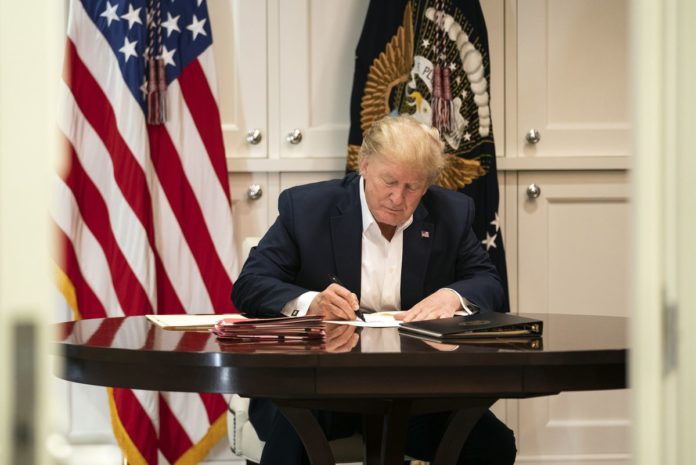

When Kim Parker, a fourth-year criminology student at St. Thomas University, heard that United States President Donald Trump tested positive for COVID-19, she said she “hopes he suffers long and hard.”
Parker, an international student from California, said she wasn’t surprised about Trump’s diagnosis on Oct. 2 considering more than 200,000 Americans died from COVID-19 since the country’s first case in January, according to Center for Systems Science and Engineering.
“I don’t think it’s unexpected that he was going to get COVID because the way he felt like he was above the virus and everybody else,” she said. “When I heard, I thought, ‘you know what? Justice has been served.’”
The Trump administration has come under fire for how it handled the president’s diagnosis. Erin Perrine, Trump’s campaign communications director, faulted Democratic nominee Joe Biden for not contracting the coronavirus in an interview with Fox News on Oct. 5. She said firsthand experiences change how someone relates to something.
“He has experience now fighting the coronavirus as an individual and those firsthand experiences, Joe Biden, he doesn’t have those,” said Perrine.
During the presidential debate last month, Trump mocked Biden for taking COVID-19 precautions, including wearing masks.
Cherishe Breen, a second-year sociology student, said she feels the mocking was a “low” move for the Trump campaign to use against Biden.
“[Trump] should have been taking the required precautions instead of vacationing and wherever the heck he goes all day,” Breen said. “If Joe Biden doesn’t have it, I wonder what the differences are between what they’re doing with their lives to help people.”
Jamie Gillies, a communications and public policy professor at STU, said there doesn’t seem to be any “bounce” in Trump’s poll numbers after the outbreak at the White House, which affected 36 people.
The timing of the diagnosis wasn’t great for Trump and the campaign couldn’t find an effective narrative, he said.
“The optics made it worse as the story developed and the inability for the campaign to have a focused message made it difficult to turn it into an effective theme for the campaign,” Gillies said in an email.
The U.S. election is on Nov. 3, less than three weeks away. Gillies said Trump’s strategy for the final weeks of the campaign is to continue to focus on the rallies in historically red states like Florida and Georgia, despite the growing numbers of COVID-19 cases in these municipalities.
Still, Gillies said the effectiveness of reaching out to voters beyond his base has yet to be seen.
For now, Gillies said the Trump administration is trying to “right the ship” to regain its messaging, but added it’s difficult to do being so close to election night. He said it’s a challenge with early voting and fewer undecided voters.
“If the Trump campaign does lose in November, the week of the White House outbreak will probably be considered the week when polls shifted definitively against the president,” Gillies said.
